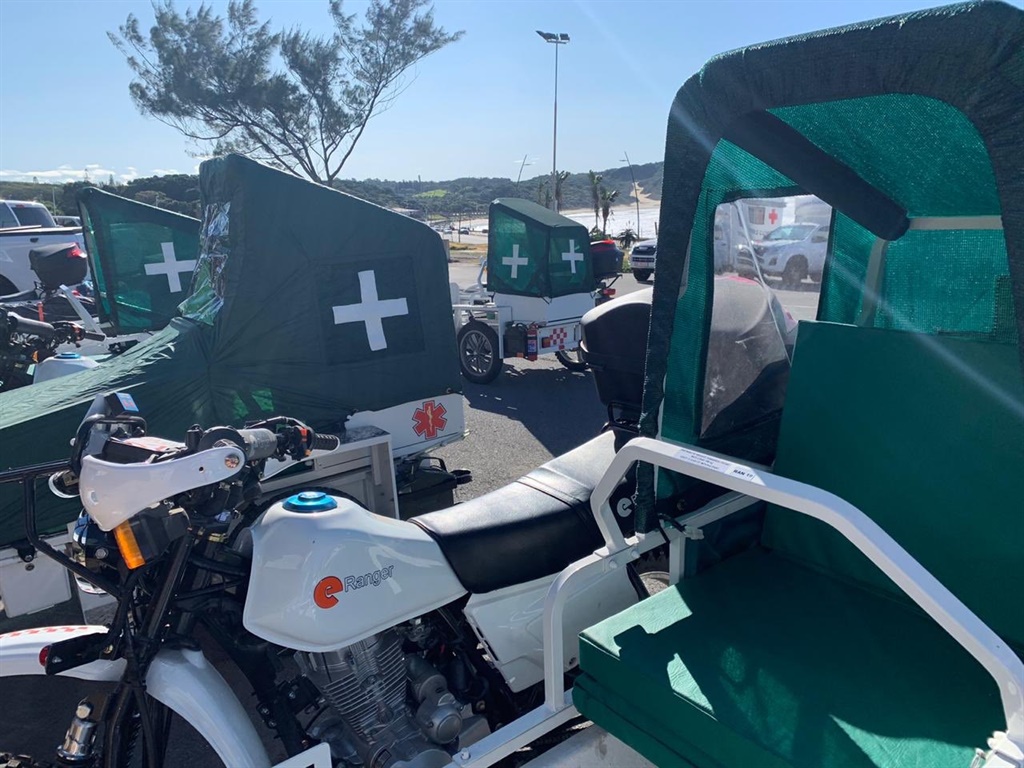


The Scooter Project was launched in the Eastern Cape on Friday.
- The Ministry of Health says the motorbikes provided for healthcare workers in the Eastern Cape would bring healthcare closer to the people.
- The ministry says it has received backlash from the public and media queries regarding the motorbikes.
- It says the motorbikes are meant to transport patients from clinics to facilities offering higher levels of care.
The Ministry of Health says the motorbikes provided for health workers in the Eastern Cape are not meant to replace ambulances but are designed to bring healthcare closer to the people.
According to the health ministry, after it received backlash from the public and media queries, it had to clarify why the motorbikes were needed.
“One of the complaints that the Eastern Cape Department of Health has received from rural communities is that because of a lack of road infrastructure, especially in rural areas, ambulances do not reach people who are sick, especially the elderly,” said health ministry spokesperson Dr Lwazi Manzi.
“The members of the community end up having to put an individual in a wheelbarrow or walking a long distance whilst carrying a patient until they reach a road where the ambulance can go.”
On Friday, Health Minister Zweli Mkhize handed over 100 motorbikes and 10 mobile clinics in the Eastern Cape.
The designer of the motorcycle ambulances Brian Harmse said the machines have an oxygen tank, masks, hospital-sized stretcher bed and first-aid kit.
READ | Fear over side-effects of dodgy hand sanitiser
It can carry up to 170kg and can move at 60km/h to care for the patient, News24 reported.
According to ministry spokesperson Manzi, Health MEC Sindiswa Gomba saw the motorbikes as an opportunity to address those instances.
She said the motorcycles were designed with off-road capabilities, and the intention was to transport patients from clinics to facilities offering higher levels of care.
READ | Eastern Cape hotspots to be zoned in on as Mkhize turns attention to ‘vulnerable’ province
“The motorbikes are appendaged by both sitting and supine units which are fully waterproofed so that even those who cannot sit up can be accommodated. No patient will be exposed to the elements while being transported in these units.
“These units are also versatile in that they can be used as mobile clinics, mobile testing units and mobile medicine delivery units which will support the [Central Chronic Medication Dispensing and Distribution] programme.”
Healthcare workers
Manzi said they can be ridden by two community healthcare workers to carry out Covid-19 screening in deep rural areas and general health screening and testing for other communicable diseases, such as TB and HIV, as well as diabetes and hypertension.
“It is for this reason that these community health workers will also carry mobile phones and two-way radios so that they can immediately alert emergency medical services personnel should a patient who requires urgent hospitalisation be identified,” she said.
The Eastern Cape health department also released a statement, saying it had “noted with regret the misperception that has been created on social media platforms following the launch of mobile clinics and scooters”.
The department said it has entered into a three year contract with a King Williams Town company after an “open and competitive bidding”.
“The three-year R10.1million contract includes procurement and cost was R94 000 per unit plus R6000 for maintenance. A total of 200 people were employed during the production period.
“The department has also employed 150 additional staff who will be operating these scooters as part of our primary health care outreach programme.”

